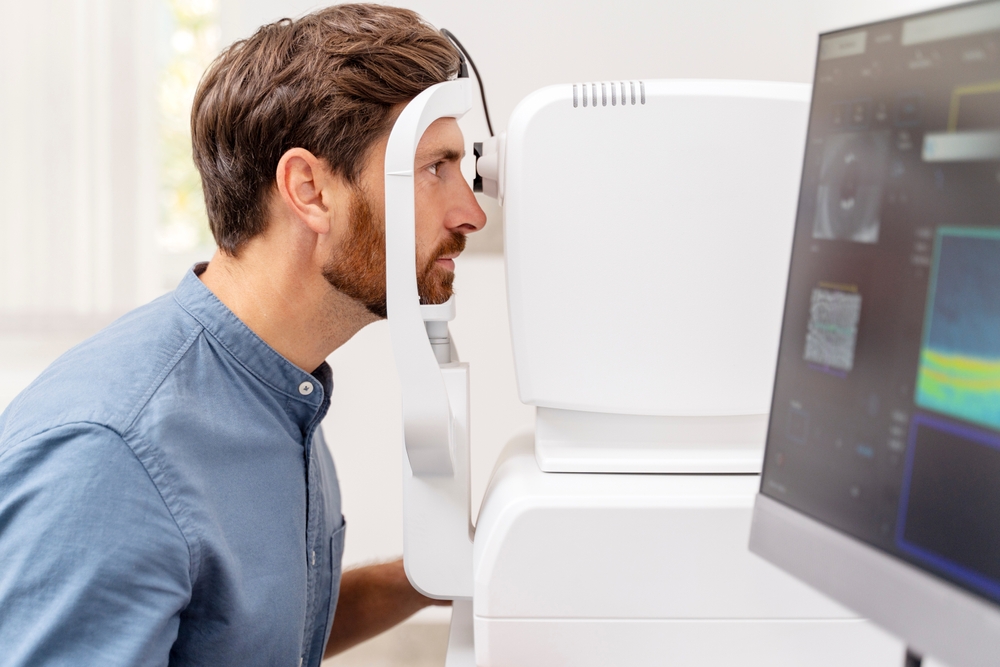
NeuroVisual assessment is a revolutionary approach that has been making waves in the field of vision care. It goes beyond the basic parameters of typical eye exams to unravel deeper issues related to our visual system. This innovative examination delves into the intricate relationship between our brain, eye muscles, and nerves, aiming to detect subtle abnormalities that might be causing a variety of uncomfortable symptoms.
What is a NeuroVisual Exam?
A NeuroVisual exam is a specialized form of eye examination that focuses on the neurological aspect of vision. It is designed to identify minute misalignments in the eyes that may be causing symptoms such as headaches, dizziness, and balance problems. These subtle misalignments, often overlooked in traditional eye exams, are the key focus of a NeuroVisual exam.
The process of a NeuroVisual exam involves a thorough assessment of your eye health and visual abilities. It begins with a comprehensive history taking to understand your symptoms and their possible triggers. This is followed by a detailed examination of your eye muscle movements, the alignment of your eyes, and your binocular vision function. Each of these components plays a critical role in determining the overall health of your visual system.
The Importance of NeuroVisual Assessment
The importance of NeuroVisual assessment cannot be overstated. It offers a comprehensive understanding of the eyes and their interaction with the brain, providing a more holistic view of an individual's visual health. By identifying subtle misalignments and binocular vision issues, it can help address a variety of symptoms that might be affecting your quality of life.
The importance of NeuroVisual assessment also lies in its ability to diagnose conditions that might otherwise go undetected. A traditional eye exam may not uncover minute misalignments or binocular vision problems, potentially leading to a delay in diagnosis and treatment. By focusing on the neurological aspect of vision, a NeuroVisual assessment can uncover these hidden issues, paving the way for timely and effective treatment.
In addition, NeuroVisual assessment plays a crucial role in creating personalized treatment plans. By identifying the exact cause of your symptoms, your eye care provider can recommend specific interventions that directly address your problems. This targeted approach can significantly improve your visual comfort and efficiency, consequently enhancing your overall quality of life.
Who Can Benefit from NeuroVisual Assessment?
NeuroVisual assessment can benefit a wide range of individuals. If you're experiencing symptoms such as persistent headaches, dizziness, balance problems, or difficulty concentrating, a NeuroVisual assessment could potentially uncover the root cause of your issues. Even if you've been through multiple medical evaluations without a definitive diagnosis, this innovative eye examination could provide the answers you've been seeking.
Children with learning difficulties, particularly those struggling with reading and writing, can also benefit from a NeuroVisual assessment. Vision problems can often interfere with a child's academic performance, and this comprehensive examination can help detect any underlying issues. By addressing these problems early on, we can pave the way for a smoother learning journey.
Lastly, individuals who have suffered a traumatic brain injury or stroke can also benefit from NeuroVisual assessment. These conditions can often result in vision problems, and a comprehensive examination can help identify and address these issues effectively. By doing so, it can play a vital role in the overall rehabilitation process.
The Next Steps after a NeuroVisual Assessment
Following a NeuroVisual assessment, your eye care provider will discuss the findings with you in detail. If the examination uncovers any issues, they will recommend a personalized treatment plan to address these problems. The treatment could include specific glasses designed to correct the misalignments, vision therapy to improve your binocular vision function, or referrals to other specialists if needed.
The next steps after a NeuroVisual assessment also involve regular follow-ups to monitor your progress. Your eye care provider will schedule these follow-up visits to ensure that the treatment is working effectively and to make any necessary adjustments. The goal is to alleviate your symptoms and improve your visual comfort and efficiency.
Remember, the journey doesn't end with the initial assessment. It's essential to stick to the recommended treatment plan and attend all follow-up appointments to achieve the best possible outcomes. With your commitment and the expertise of your eye care provider, you can look forward to significant improvements in your vision and overall quality of life.
The Impact of NeuroVisual Assessment on Quality of Life
The impact of NeuroVisual assessment on quality of life is profound. By uncovering hidden vision problems and offering targeted treatments, it can alleviate debilitating symptoms, improve visual comfort, and enhance your overall well-being. It's not just about seeing clearly; it's about living comfortably and efficiently in a visually demanding world.
Whether you're struggling with unexplained symptoms or looking to optimize your visual performance, consider a NeuroVisual assessment. Visit Ocean Park Optometry at our Santa Monica, California office. Call (310) 452-1039 to schedule an appointment today.










